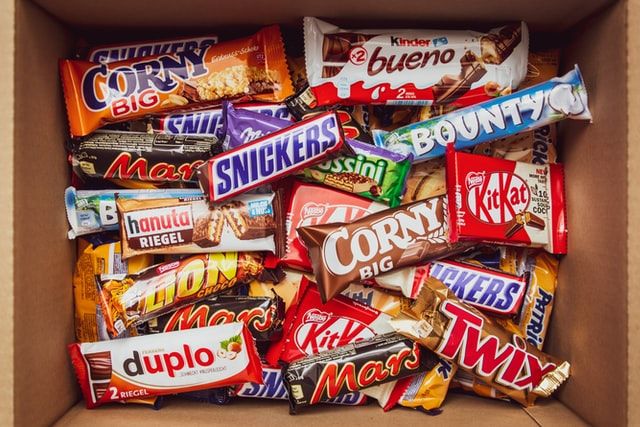Search Engine Optimisation 101
Posted on:
What is SEO?
SEO stands for Search Engine Optimisation and refers to how search engines like Google or Bing interact with and rank your website among the rest of the millions of search results. We rely on search engines to keep track of the information on the internet and then sort it into a set of useful search results, ignoring all the useless or irrelevant content. When we use a search engine, we put our trust in them to know what we're looking for, and to use their magical search algorithms to separate out the billions of possible answers to find a page or two of meaningful answers.
What's an algorithm?
An algorithm is a chain of logic similar to a mathematical formula.
An algorithm is a set of instructions to provide an outcome. An algorithm can be a search engine, or a recipe; both are a set of instructions that provide an outcome. Most of the time when someone mentions algorithms, they mean mathematical problem solving, but the common use of the word is the algorithms used by search engines, as their servers use algorithms to sort, categorise and then provide you with your answer. These algorithms change frequently, but the aim of any search engine is always to provide the user with relevant, useful content quickly. The data that the algorithm draws from will also change, depending on the focus of the search engine team and the way the industry moves and changes around us.

Do I have to know algorithms to do SEO?
SEO is about learning the rules that power the algorithms, and then trying to create a website targeted for the search engine servers to select that website over other websites; this is particularly important if you are using the internet to sell products or services. Most people when using a search engine will select an answer from the top page of links, and everyone wants to be on the first page (think about the last time you clicked through to the second page of results on Google). You can get onto the first page by either paying for an advertisement (called Pay Per Click or PPC), or with organic search. Both of these can be quite complicated, and can require a lot of work and background knowledge so in this article we're only looking at the organic search side of things (we will look into PPC in a later article).
Search engines use a number of metrics to calculate if a webpage is worth serving to a user and their business model is to make their customer happy, not the website. Some of the data that is considered is the text, the images, the links to your website (from other websites), the links from your website (and which websites they go to), the language you use and the quality and age of your content and your links. If your web page is considered to be of low value, then it will be ranked low and appear further down the list, while higher value pages will be provided to the customer first. The parts that make the ranking is secret (a search engine's algorithm is like their secret sauce, they'll never tell exactly what it is) but every aspect of your webpage is evaluated, and it all contributes to a ranking score. Every search engine will also have a different way of evaluating your webpage.
For example, if you sell chocolate bars and another site reviews and links to you that sells computers, that link isn't recognised as being related to you so is of low rank, whereas if a candy store linked to you with a review, this is rated more highly, and all of these details contribute towards your ranking. The quality of the websites that link to you are also taken into account and most of the time links from social media platforms (eg. Facebook, LinkedIn, Twitter, Instagram) will help you rank higher, as they're legitimate websites and you can't fake visitors coming from there.

How do people manipulate the SEO rankings?
Many people hire SEO specialists, who can do research into your industry, your webpage, your competitors and customers, and then provide you with resources like keywords (the kind of words that your customers are searching for, eg. one of our keywords is web design) to use in your webpages and blog posts. This is a delicate balance though, and you can't just cram a bunch of keywords onto a page, because search engines are aware of this practice, and keywords provided without context will not only not help you, they will likely mark you down for trying to gain the system.
SEO is part mathematics and part dark arts. No one outside the search engine company knows how the algorithms calculate rankings exactly, and so while a lot of services can help improve your SEO ranking, there's no guaranteed way to increase your sales or visibility other than consistency in quality and activity on the net. Some of the ways to improve your SEO ranking are:
- Consistent quality of text, images, articles, publications on your page
- Content that is useful, meaningful, and fun to read
- Regular posts and updates, this is why the really good SEO companies will recommend you write and maintain a blog
- Proving to your customers that you're a quality company to work
- Quality backlinks from industry related organisations and colleagues
- Good user traffic coming to and staying on your website to browse your store or read your blog posts
Good SEO does not involve manipulating the rankings of your website. It's a process that involves you improving how search engines view your website, and letting them know that you are a quality and trustworthy place for them to send customers. If your website isn't comfortable to use, if the web page is not mobile phone friendly or you don't have the information they're looking for, it doesn't matter what you do with keywords. Search engines can see that people only visited one page for a few seconds (called a bounce rate), or don't use your site at all. Similar to a physical shop, your website should be a good experience for your customers. They should be able to come and grab the one thing they want, or they may just want to meander around and browse at what you have available. If customers are walking into a store and immediately walking out without buying anything, this is a flag for any sales store. This sort of online activity tells the search engine algorithm that would your webpage discourages repeat visits, and also discourages other visitors to come and visit. The algorithm would determine that the user's experience of your website would be of low value, and serve higher ranked webpages when requested.
If you know your industry keywords, then you can certainly find ways to add them, and you can also take on group projects with others in your industry precisely for the marketing. SEO is popular as a cost effective, often free way of increasing your standing on the search engine results. However, the algorithm is constantly changing, and what may work this week might not be so popular in the searches next week. SEO can be a useful tool in the toolkit, but should not be the only marketing you use.

Further Resources
https://www.singlegrain.com/seo/effective-seo-techniques-that-work/
https://www.crazyegg.com/blog/how-to-optimize-your-website/
https://www.seroundtable.com/google-interactive-seo-checklist-32447.html
